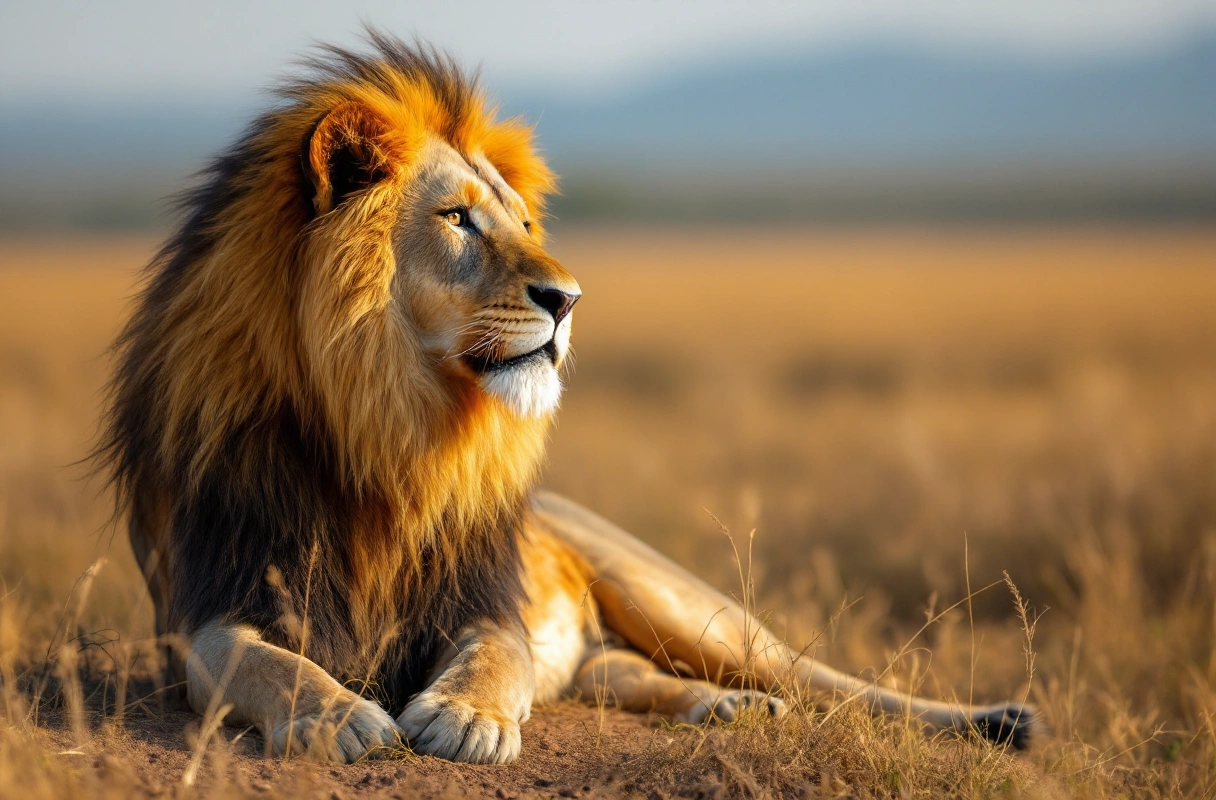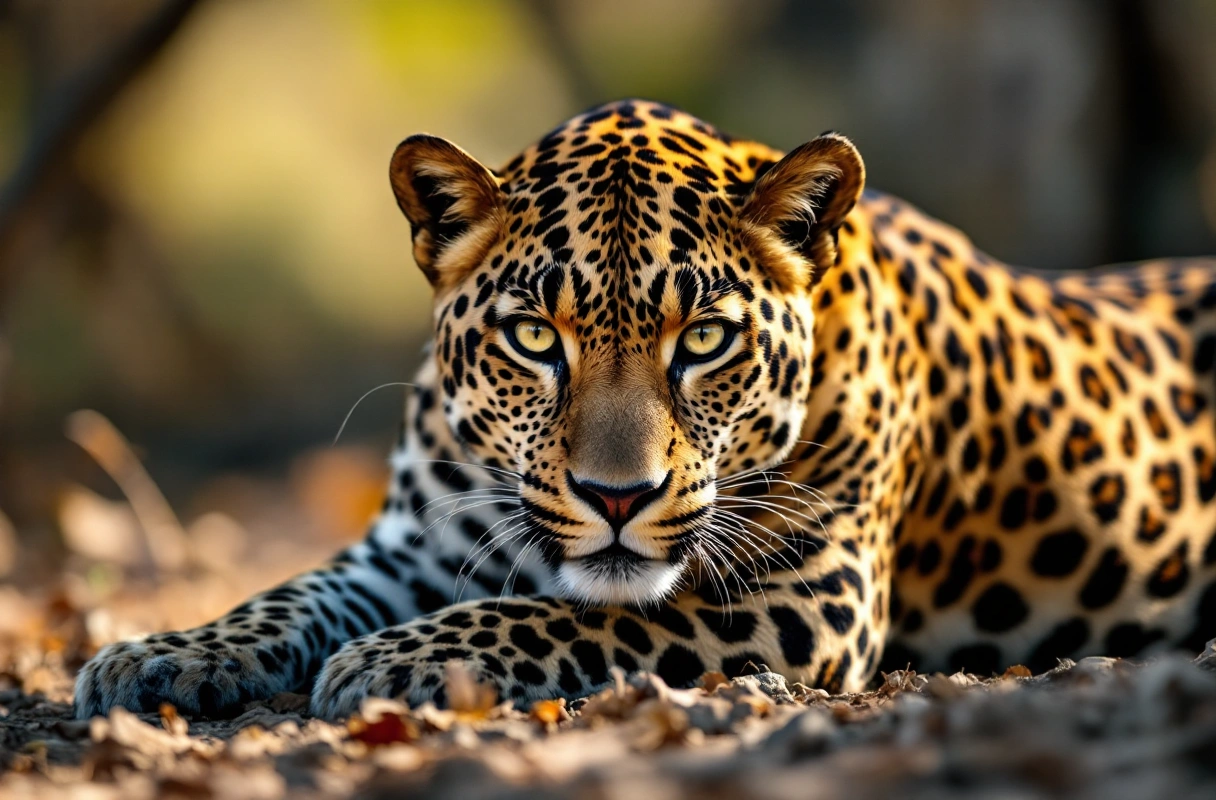
African safaris offer an unparalleled opportunity to encounter some of the world's most remarkable wildlife. From the majestic elephants of the savannah to the elusive leopards hiding in the trees, the diversity of African animals captivates nature enthusiasts and adventure seekers alike. Expert guides play a crucial role in enhancing the safari experience by sharing their extensive knowledge of these creatures, ensuring that every moment spent in the wild is both educational and exhilarating. In this article, we will explore the top ten fascinating African animals that you may encounter on safari in 2025, along with insights into how expert guides can enhance your wildlife tour experience.

The African elephant, the largest land mammal on the planet, is a true icon of the African wilderness. Known for their intelligence and complex social structures, these magnificent creatures can weigh up to 12,000 pounds and stand over 13 feet tall. African elephants are often seen in family groups led by matriarchs, showcasing their strong familial bonds and social behaviors.
Expert guides play a vital role in observing and interpreting elephant behavior. They can explain the nuances of herd dynamics, communication methods, and the importance of conservation efforts to protect these majestic animals from poaching and habitat loss. Understanding the role of elephants in their ecosystems can deepen your appreciation for these gentle giants.

The African lion, often referred to as the "king of the jungle," is a symbol of strength and power. These apex predators are known for their social structure, living in prides that can consist of up to 30 members. Lions primarily hunt during the night and are recognized for their cooperative hunting strategies, which are fascinating to witness in the wild.
Guides are essential in helping safari-goers locate lion prides and explaining their hunting techniques and social interactions. They can share insights into the roles of male and female lions, the importance of territory, and the threats lions face in the wild. Witnessing a lion pride in action can be one of the most thrilling experiences on safari, and expert guides enhance that experience with their knowledge.

The elusive African leopard is renowned for its adaptability and stealth. These solitary big cats are often spotted lounging in trees, where they store their prey away from scavengers. Leopards are skilled hunters, using their keen eyesight and stealth to stalk and ambush their prey.
Expert guides are invaluable when it comes to tracking leopards in their natural habitat. They can educate travelers about the leopard's hunting techniques, camouflage abilities, and territorial behaviors. The thrill of spotting a leopard in the wild is amplified by the guide's insights into this elusive predator's life.
The African buffalo, with its massive horns and strong build, is a formidable presence on the African plains. These herbivores are known for their unpredictable nature and are considered one of the "Big Five" due to their potential danger to humans when provoked. Buffalo herds can be quite large, often consisting of several hundred individuals.
Guides provide valuable context about buffalo behavior and their role in the ecosystem. They can explain how buffalo interact with other species, such as oxpeckers, which help keep them free of parasites. Understanding the complex social structure of buffalo herds enhances the safari experience, making each encounter more meaningful.
The giraffe, the tallest land animal, is easily recognizable with its long neck and unique patchwork coat. These gentle giants can reach heights of up to 18 feet, allowing them to feed on leaves high in trees that other herbivores cannot reach. Giraffes are known for their graceful movements and social interactions, often seen in groups called towers.
Expert guides can provide insights into giraffe behavior, such as their unique feeding habits and social dynamics. They can also explain the giraffe's adaptations, like their long tongues and specialized cardiovascular systems, which allow them to thrive in their environment. Observing giraffes in their natural habitat offers a unique perspective on these fascinating animals.
Zebras, with their striking black and white stripes, are one of Africa's most iconic animals. These social creatures live in herds and are known for their strong bonds with one another. Zebras are often seen grazing on the savannah, and their stripes serve as a form of camouflage against predators.
Guides play a key role in explaining the significance of zebra stripes, including theories about their evolutionary purpose, such as deterring flies and confusing predators. Observing a herd of zebras can provide insights into their social structure and behaviors, making for an enriching safari experience.
Rhinoceroses, with their thick skin and impressive horns, are among the most endangered African animals. There are two species found in Africa: the black rhinoceros and the white rhinoceros. Both species face significant threats from poaching and habitat loss, making conservation efforts critical.
Expert guides are crucial for educating safari-goers about the importance of protecting rhinos and the challenges they face. They can share information about ongoing conservation initiatives and the role of anti-poaching efforts. Witnessing a rhino in the wild is a poignant reminder of the importance of wildlife preservation.
The cheetah is the fastest land animal, capable of reaching speeds up to 60 miles per hour in short bursts. These sleek cats are built for speed, with long legs and a lightweight body. Cheetahs are primarily solitary hunters, known for their incredible agility and unique hunting techniques.
Guides are essential in helping travelers understand cheetah behavior and their hunting strategies. They can explain how cheetahs use their keen eyesight to spot prey and the tactics they employ during a chase. Observing a cheetah in action is a thrilling experience, and guides enhance the excitement with their knowledge of these remarkable animals.
The hippopotamus is one of the largest mammals in Africa, known for its massive size and semi-aquatic lifestyle. Hippos spend much of their day submerged in water to keep cool, emerging at night to graze on grass. Despite their seemingly docile nature, hippos are highly territorial and can be extremely dangerous.
Expert guides are crucial for providing insights into hippo behavior and their role in river ecosystems. They can explain the dynamics of hippo social groups and the importance of protecting their habitats. Observing hippos in their natural environment, particularly during sunset when they emerge from the water, can be a breathtaking experience.
The African wild dog, also known as the painted wolf, is one of Africa's most endangered species. These highly social animals live in packs and are known for their cooperative hunting strategies. Wild dogs are characterized by their unique coat patterns and incredible endurance during chases.
Guides play a significant role in tracking wild dogs and explaining their complex social structures. They can provide insights into the challenges wild dogs face in the wild, including habitat loss and competition with other predators. Witnessing a pack of wild dogs in action is a rare and exciting experience that highlights the importance of conservation efforts.
Expert guides are the backbone of any successful African safari. Their extensive knowledge of wildlife, ecosystems, and conservation efforts enhances the overall experience for travelers. Here are some key roles they play:
Guides provide invaluable insights into the behaviors, habitats, and conservation status of African animals. They can answer questions, share interesting facts, and help visitors understand the intricacies of the ecosystem. This knowledge fosters a deeper appreciation for the wildlife and the importance of preserving their habitats.
Navigating the African wilderness can be challenging. Expert guides ensure the safety of safari-goers by knowing the terrain and understanding animal behavior. They can anticipate potential risks and make informed decisions, allowing travelers to enjoy their experience without undue concern.
Guides often serve as advocates for wildlife conservation. They educate visitors about the threats facing African animals and the importance of conservation efforts. Many guides are involved in local initiatives, providing firsthand knowledge of the challenges and successes in wildlife protection.
Exploring the rich diversity of African animals offers an unparalleled opportunity to connect with nature and learn about wildlife conservation. The expert guides you encounter on safari play a pivotal role in enhancing your experience, providing insights and knowledge that deepen your understanding of these magnificent creatures. From the towering giraffes to the elusive leopards, every encounter is an opportunity to learn and appreciate the wonders of the African wilderness.
At the Banana Slug Club, we are dedicated to inspiring nature enthusiasts, students, and children to explore the world around them. Our resources and programs encourage a love for science, nature, and wildlife. We invite you to visit our website or contact us for more information on how you can engage with the incredible world of African animals. Whether you're planning your next safari or simply looking to learn more, the Banana Slug Club is here to help you apply what you've learned about these fascinating creatures and their habitats.
Get free resources, early access to new features and updates.
No spam. Just fun educational emails!